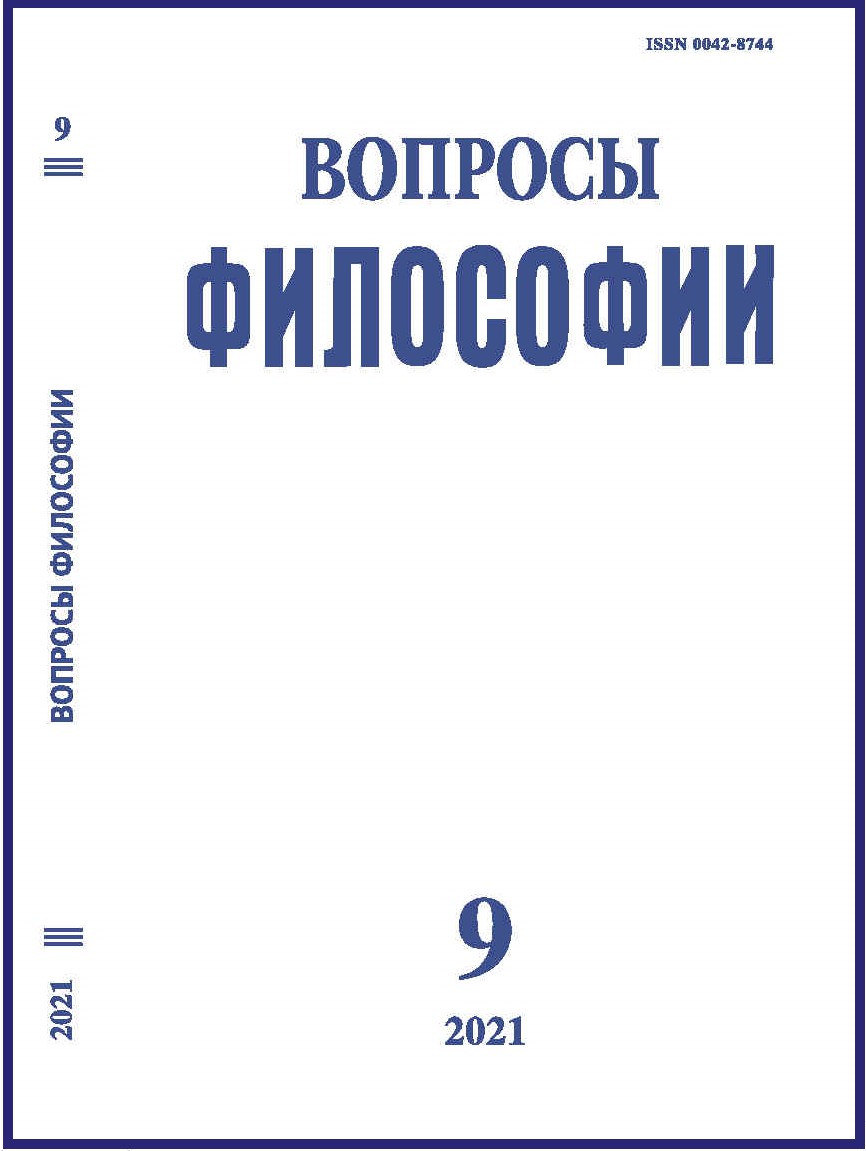Sergey Rubinstein on Hegel’s Method of Thinking: a Neo-Kantian Criticism
DOI:
https://doi.org/10.21146/0042-8744-2021-9-90-102Keywords:
S.L. Rubinstein, Cohen, Hegel, Kant, Neo-Kantianism, method, rationalism, dualism, science, philosophical methodology, history of philosophyAbstract
In this research I focuse on Sergey L. Rubinstein’s German dissertation “A Study on the Problem of Method” (1913–1914), which aimed at solving the problem of method in transcendental philosophy as distinguished from Hegel’s philosophy and dualistic philosophical systems. After a brief description of the context in which this problem emerged in the 1910s, I reconstruct its general original intent from the archive copy of the dissertation. Further I show that the published part of Rubinstein’s study was the first serious attempt to explain the difference between the transcendental logic of Cohen and Natorp and what the Neo-Kantians called Hegel’s “absolute rationalism”. This issue has become one of the most difficult questions in the philosophical self-reflection of Marburg Neo-Kantianism. I reveal that in his critique of Hegel Rubinstein is based on the Cohen’s thesis on the immanence of thinking and being, which means that all being in sense of its substantive determination is a function of thinking. In Hegel’s “Science of Logic” Rubinstein finds a violation of this principle, namely dualistic features expressed in the independence of being and thinking. From Rubinstein’s further reflections it becomes clear that his critical thesis against Hegel about the transcendence of being in relation to all other logical definitions is oriented on Cohen’s conception of the last ground and his own project of an open system of categories. However, Rubinstein has overlooked that the epistemological differences between the concept and the object of the concept, thinking and being, are overcome on the last pages of Hegel’s “Phenomenology of Spirit” by the concept of absolute knowledge, and “The Science of Logic” is a theory of pure thinking which seeks to justify the substantivity of thinking on the basis of a methodological rule, by means of which both the difference of being and thinking, and their unity with the concept of pure thinking are revealed simultaneously.

